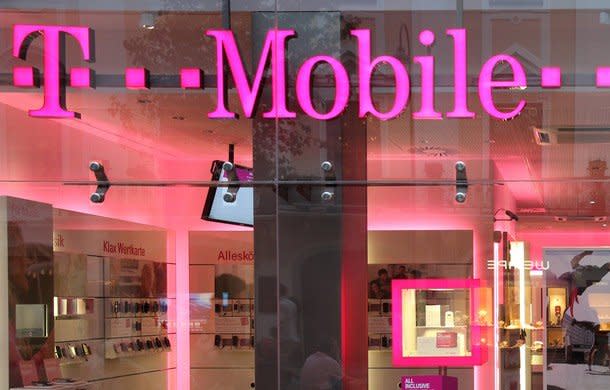T-Mobile Accused of Billing Customers for 'Bogus Charges'

T-Mobile has made a point of sticking it to the competition. Turns out, the carrier has also been sticking its customer with bogus fees, according to the U.S. government.
In a complaint filed yesterday, the Federal Trade Commission charged the company "with making hundreds of millions of dollars" by billing customers for unauthorized 'premium' subscriptions that they never ordered, including spam-y stuff like flirting tips, horoscope information and celebrity gossip.
In a process known as "cramming," T-Mobile placed third-party, unauthorized charges on its customers' bills, the complaint alleges. Instead of making it obvious that these fees were coming from outside companies, T-Mobile instead obscured that small but pretty important detail, listing recurring subscription fees simply as "Premium Services."
In addition, the bogus charges were often buried in phone bills that ran longer than 50 pages, according to the FTC.
Related: Leaked T-Mobile Memo Reveals BlackBerry Loyalists Are Jumping Ship
The carrier had a financial incentive for hiding the unauthorized fees: T-Mobile was taking a cut, in most cases somewhere between 35 to 40 percent, the FTC states.
“It’s wrong for a company like T-Mobile to profit from scams against its customers when there were clear warning signs the charges it was imposing were fraudulent,” FTC Chairwoman Edith Ramirez said in a statement. “The FTC’s goal is to ensure that T-Mobile repays all its customers for these crammed charges.”
T-Mobile's outspoken CEO John Legere responded in a statement of his own, calling the FTC's complaint "unfounded and without merit."
"T-Mobile stopped billing for these Premium SMS services last year and launched a proactive program to provide full refunds for any customer that feels that they were charged for something they did not want," he said, before going on the offensive. "T-Mobile is fighting harder than any of the carriers to change the way the wireless industry operates and we are disappointed that the FTC has chosen to file this action against the most pro-consumer company in the industry rather than the real bad actors."
Related: T-Mobile 'Sticks It' to Competition, Will Cover Early Termination Fees
Legere places the blame solely on the shoulders of the third-party providers, claiming that the FTC's lawsuit is "misdirected."
The FTC isn't having any of that, though. The commission accuses T-Mobile of both failing to refund consumers who detected the fraudulent charges and making claims that "consumers had authorized the charges despite having no proof of consumers doing so."
The FTC lawsuit hits T-Mobile, which has positioned itself as an unorthodox carrier (or "un-carrier") by doing away with contracts and paying early termination fees for customers looking switch to the T-Mobile network, at a pivotal point: the company has recently been the subject of merger talks with Sprint.
CEO Legere has repeatedly made the news for his brash criticism of his competitors. "This industry blows," he said back in January, after crashing and getting kicked out of an AT&T party. His aggressive tactics appear to be working, however. (Last year, the carrier added 4.4 million new users.)
More recently, at T-Mobile's Un-carrier 5.0 event, Legere went further, calling competitors AT&T and Verizon “high and mighty duopolists that are raping you for every penny that you have."
Related: T-Mobile Announces Data-Free Music Streaming, iPhone Test-Drive Program
More From Entrepreneur

 Yahoo News
Yahoo News 
